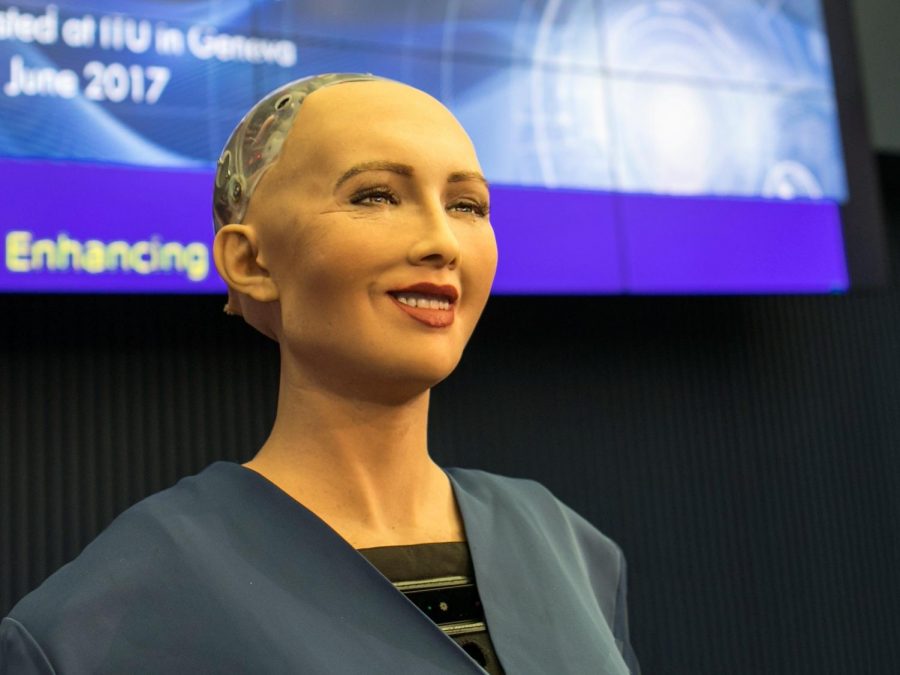The growth of artificial intelligence
Sofia, the first citizen robot in the world
December 11, 2017
In the past decade, technology has made the world smaller as smartphones, wifi, and social networking sites were introduced. While these innovations are continuously growing, another thing that extends the power of technology is the birth of artificial intelligence.
“Everything we love about civilization is a product of intelligence, so amplifying our human intelligence with artificial intelligence has the potential of helping civilization flourish like never before – as long as we manage to keep the technology beneficial,” said Max Tegmark, President of the Future of Life Institute, in an article in Futurism.
The rapid increase of these self-governing programs is a proof of how people are in constant demand of these innovations. For Mr. Bruce Bennett, lead mentor for RHS FEDS, AI doesn’t only improve his way of living, but he also believes that AI has the capabilities to do things beyond what a normal person can usually comprehend.
“I can say that it may help prevent things from happening that we are not smart enough to understand,” said Mr. Bennett. “Like in the future, if I decide to make a lane change in traffic, and that lane closes, AI may have been able to realize the broader picture and not have made that lane change.”
Although AI has continued creating an impact on the lives of many, it creates a whole new zone of problems that challenges the society. The growth of these introductions to the modern age can create a dependency.
“I think it is kind of like everything else, we can form a dependency on it,” Mr. Bennett said. “Like texting, Facetime, and phone calls have replaced good old-fashioned conversations. And if we become dependent on it, then our society may adapt in a negative way.”
Most of the times, the positive outcomes of these innovations are overlooked because of the negative ideas that sometimes come from the media or even from the mistakes that people themselves commit.
“I think the movies have really ruined it for us, but I think it could become useful,” Mr. Bennett said. “I don’t think it should be a ‘freeware’, but I think it should be metered.”
Unlike humans, AI does not have the ability to feel emotions. They are scientifically programmed with algorithms that tell them what to do. Because of this, the issue of it being launched in the real world to interact with other people became a huge question whether it is ethical or not.
“Some people have different outlooks on ethics so AI could be killing people because of their definition of ethics,” sophomore Claire Bagley said.
AI still hasn’t reached its fullest capacity to help people in every aspect. Whether it will be in the near future or countless more years, there’s no denying that AI is closer than it has ever been, and it is not just something that people can see in Sci-Fi movies anymore.
“I don’t think AI will reach it’s fullest potential,” said senior Taylor Zale. “It will just keep growing.”
The emergence of these types of technology catapulted humanity to an era that is now past the idea of it just being an aspiration to people years ago, but as it continues to grow, Mr. Bennett addressed that it is now up to the people to decide how they will perceive and use these AI technology, whether it might be for the better or worse.
“We will either accept that AI has its flaws, like we do humans, and move on or we will try to make it perfect,” Mr. Bennett said. “The other side is that we might make an error in the programming itself, and that could cause its own disaster.“





